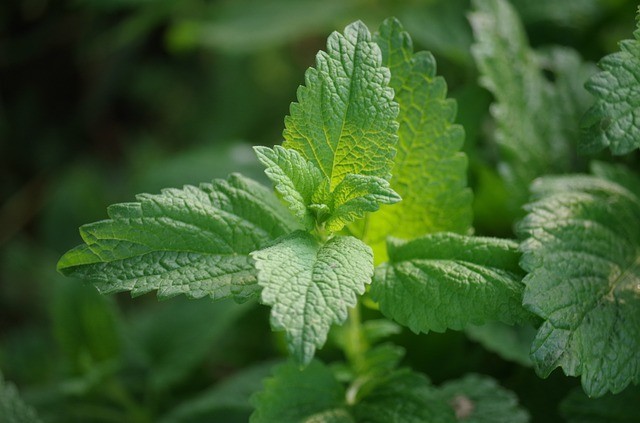Origin and presentation of Lemon balm
Lemon balm, also known as Melissa officinalis, is a herbaceous plant in the Lamiaceae family. Native to the Mediterranean and Central Asia, it is now widely cultivated throughout the world for its many medicinal and culinary virtues. It can be recognised by its green, heart-shaped leaves, white or pale pink flowers and characteristic lemony scent.
This plant was already used in ancient times by the Greeks and Romans for its medicinal properties, particularly to treat digestive disorders and sleep problems. The name 'lemon balm' comes from the Greek melí̱ssa, meaning 'bee', as this plant is much appreciated by bees for its abundant nectar.
Today, Lemon balm is grown mainly in Europe, North America and Asia for its leaves, which are rich in essential oils, and its many uses in phytotherapy.
Benefits of lemon balm
Lemon balm is renowned for its many health benefits. It has sedative, antispasmodic, anti-inflammatory, antiviral, antibacterial and antioxidant properties.
It is used in particular to treat digestive disorders such as bloating, stomach cramps, flatulence and nausea. Its essential oil and tannin content gives it anti-inflammatory and antispasmodic properties that help to soothe abdominal pain.
Lemon balm is also effective in treating sleep disorders, such as insomnia and anxiety. It has calming effects on the nervous system and can help reduce stress and promote relaxation. It is also used to relieve headaches and migraines.
Lemon balm is also renowned for its antiviral and antibacterial properties, making it a natural remedy for preventing and relieving respiratory infections such as colds and flu. It can also be used to relieve the symptoms of herpes labialis.
Finally, Lemon Balm is also beneficial for skin health. Its antioxidant properties help prevent premature ageing and protect the skin against free radicals. It is often used in cosmetic products for its soothing and regenerating effects on the skin.
Use as a food supplement
Lemon balm can be used as a dietary supplement in a variety of forms, including infusions, essential oils, capsules and mother tinctures.
Lemon balm infusion is ideal for relieving digestive problems and promoting relaxation. To prepare an infusion, simply pour boiling water over a teaspoon of dried Lemon Balm leaves and leave to infuse for around 10 minutes.
Lemon balm essential oil can also be used as a vapour for its relaxing properties and to purify the air. It can also be applied locally to the skin to relieve muscle aches and insect bites.
Lemon balm capsules are often used for their sedative properties and to promote sleep. They can also be effective in relieving digestive problems and headaches.
Lemon balm mother tincture is an alcoholic plant extract that can be used to treat digestive disorders, insomnia and stress.
It is advisable to consult a health professional before taking Lemon Balm as a dietary supplement, particularly for pregnant or breast-feeding women, and for people taking medication.
Precautions and side effects
Lemon balm is considered safe when used in normal quantities in food and as a dietary supplement. However, it can cause side effects such as headaches, nausea and abdominal pain in some people.
It is important not to exceed the recommended doses and to consult a health professional if you experience any side effects.
Pregnant and breast-feeding women, children and people with special health problems should consult their doctor before taking Lemon Balm as a dietary supplement.
Conclusion
Lemon balm is a plant with many medicinal and culinary virtues. It has been used for centuries to treat a variety of health problems, including digestive disorders, sleep disorders and respiratory infections. As a dietary supplement, it can be beneficial to health, but it is important to always follow the recommended doses and consult a health professional if in doubt.
Don't hesitate to include this plant in your diet to take full advantage of its benefits. However, don't forget to consult reliable, scientific sources before adding any new food supplements to your routine. Here are a few French-language studies on lemon balm:











